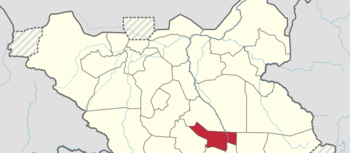Representatives of the Jonglei displaced community in Mangalla County and their Murle counterparts in the Mogiri area of Central Equatoria State on Wednesday agreed to peacefully coexist.
The commitment was made during a dialogue meeting held between the two rival communities in the Mogiri area.
Speaking to Radio Tamazuj, Atem Akuoc, the chairperson of the Mangalla IDP camp, said the meeting was fruitful, and that the two rival communities had agreed to end feuds and live peacefully through exchange visits.
“People in Mangalla and those in Mogiri have been living in fear of imminent attacks. Murle traders fear that the IDP community may attack them as they take cows to Juba, and for us, in Mangalla we also live in fear. So, we both agreed to co-exist and that no one shall attack the other," he said.
The community leader pointed out that the two sides also agreed to exchange visits to build trust.
Korok Logole, the Murle community representative, urged youth from the two communities to desist from violence, emphasizing the importance of peace in the country.
“No one benefits from deaths. So, we must adhere to the peace messages from our government so that 2021 becomes a year of peace. We came up with this initiative because we do not want more bloodshed between Jonglei and Greater Pibor,” Logole asserted.
Peter Ajak, the coordinator for the Greater Pibor Administrative Area, said the dialogue was fruitful and he is hopeful that the dialogue will yield peace between the two communities.
For his part, Jacob Achiek, the head of the civil society National Civil Alliance, welcomed the grassroots peace initiative, describing it as a way forward towards the realization of peace and stability.
The activist, however, warned that failure if no follow-up mechanism is developed to monitor the implementation of resolutions and hold the violators to book.




